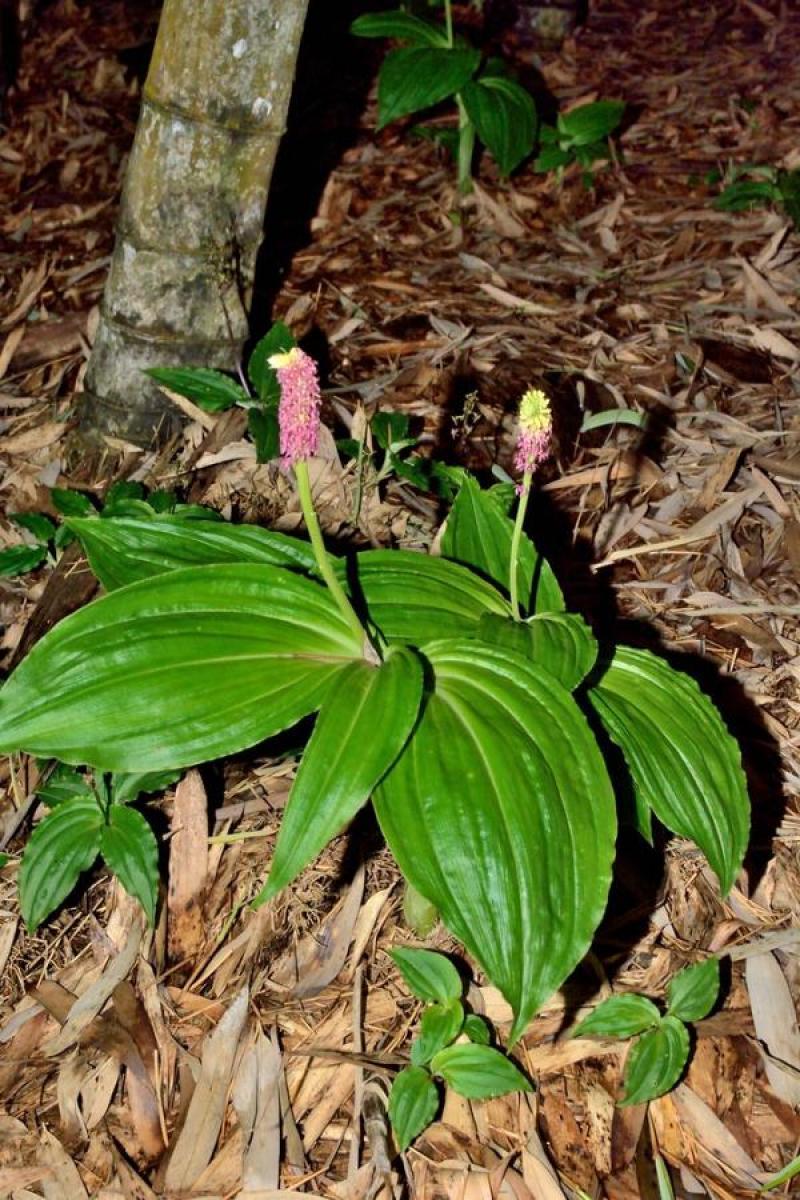Dienia ophrydis
Also known as: Spiranthes plantaginea Malaxis congesta Neottia plantaginea Microstylis latifolia Anaphora liparioides Dienia curranii Dienia congesta Dienia fusca Dienia latifolia Dienia montana Malaxis latifolia Corymborkis latifolia Gastroglottis latifolia Malaxis parvissima Liparis bernaysii Microstylis congesta Microstylis carnosula Microstylis ishigakensis Gyrostachys plantaginea Malaxis curranii Malaxis vietnamensis Liparis turfosa Malaxis carnosula Gastroglottis montana Microstylis fusca Microstylis dalatensis Malaxis plicata Microstylis bernaysii Malaxis latifolia var. nana Microstylis kizanensis Microstylis trilobulata Liparis krempfii Glossochilopsis carnosula Malaxis kizanensis
Native to: Bhutan Cambodia Fujian - China India Myanmar Nepal Queensland - Australia Thailand
General Information
Dienia ophrydis is a cool to hot growing orchid native to Bhutan, Cambodia, China, India, Myanmar, Nepal, Australia, and Thailand.
Plant Description
Grows to 50cm. Each new growth has numerous lance shaped oblong shaped leaves that grow to 4-30cm long. Pseudobulbs grow to 1.5-25cm
Substrate(s)
- Fine
- Bark
- Spaghnum Moss
- Perlite
- Sand
Climate
Grows at low to high elevations. Rainfall ranges from 41mm to 460mm per day, heaviest in September and lightest in January. Humidity ranges from 65% to 74%, highest in September and lowest in March. Temperature ranges from 12C to 28C, highest in June (19C to 28C) and lowest in January (12C to 21C).
Watering
These orchids prefer a constant supply of moisture, with a slight drying out between waterings. Saucers can be placed under pots to retain moisture during hot weather, however the saucers should be removed or let to dry every 1-2 weeks to prevent rot. Keep an eye on the plant especially in hot weather and look for cues of under/overwatering and adjust accordingly.
During Spring, be sure to keep media moist.Fertiliser
Apply liquid based fertiliser per recommended directions. They can benefit from a high phosphate fertiliser leading up to flowering season, followed by a high nitrogen fertiliser when new growth appears, and a balanced fertiliser in other times. These orchids can also tolerate slow release fertiliser applied 1-2 pellets per cup (250ml) of media.
Use balanced fertiliser during Spring and Summer. Apply fertiliser regularly at half strength year round. Use a high Nitrogen fertiliser during Spring and Summer. Use a high Phosphorous fertiliser during Summer. Reduce fertiliser when plant is dormant.




















